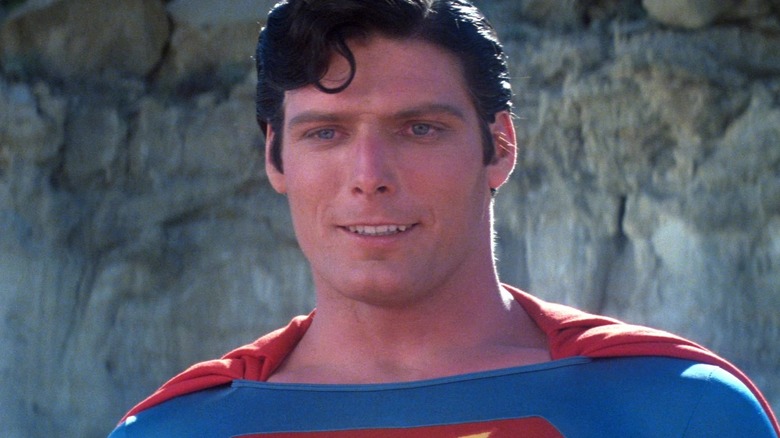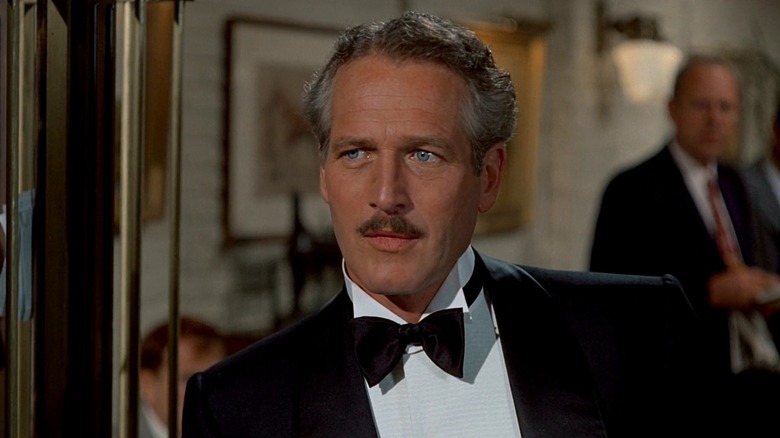The Oscar Winner Who Was Offered Every Major Male Role In The 1978 Superman Movie
The New Hollywood era — which began with the release of the true story-based "Bonnie and Clyde" in 1967 before breathing its last in 1981 with Michael Cimino's notorious bomb "Heaven's Gate" (a film its star, Christopher Walken, felt got more hate than it deserved) — was one of the most exhilarating artistic movements of the 20th century. It came after a fallow creative period for the major studios, which were mostly run by old moguls who'd lost the pulse of the moviegoing public. They didn't get the Baby Boomer generation, so when a younger, hipper group of executives and producers demonstrated a knack for packing the nation's theaters with movies like "Rosemary's Baby," "The Exorcist," and "The Godfather," there was a sudden changing of the guard (and mindset).
This mindset had nothing to do with the types of films being made. It was just as the great screenwriter William Goldman once quipped: when it came to what worked, nobody knew anything. What they did know, however, was that films like "M*A*S*H,' "American Graffiti," and "Jaws" had people lining up around the blocks of their local theaters. Films were becoming first-run phenomena, and, with the proliferation of multiplexes, the studios were keen to get them into the nation's theaters much more quickly than usual in order to capitalize on the hype.
"Jaws" and "Star Wars" were New Hollywood works in that they were shot unconventionally by young directors who made their studios incredibly nervous as to whether they could deliver the promised hit, but they were also, at heart, thrill rides built to enthrall all ages. When studios realized how much freaking money was to be made off these blockbusters ("Jaws" was the highest grossing movie of all time until "Star Wars" topped it two years later), they were willing to spare no expense to duplicate these successes.
Producers Alexander and Ilya Salkind knew this when they were putting "Superman: The Movie" together, so, to ensure their film would be the can't-miss event of 1978, they threw money around with reckless abandon. This was especially true when it came to assembling the cast. No name was too big, and no price was too high ... though one Hollywood legend and Academy Award-winner still managed to say no to three of the movie's four major roles.
Paul Newman blew off Krypton (and Superman: The Movie)
The Salkinds were already notorious Hollywood players when they got around to making "Superman" (the budget for which was a constant point of contention). Their controversial splitting of "The Three Musketeers" and "The Four Musketeers," where they tried to get away with paying their actors once for two movies essentially filmed back-to-back, hastened the Salkind Clause. As such, the industry was both on guard for their unconventional practices and eager to cash in.
While attempting to cast the film's three major male roles (Superman/Clark Kent, Lex Luthor, and Jor-El), the Salkinds aimed as high as possible. Their wishlist for the titular role included just about every big name in Hollywood, e.g. Steve McQueen, Robert Redford, and Sylvester Stallone. Some of these names were considered for the other two roles, but only one film legend was offered all three parts: Paul Newman
Newman had turned 53 years old the year "Superman" was released. Amazingly, the rascally Ohioan with the piercing blue eyes still could've handled the part of the Man of Steel (though the dyed-dark hair would've looked weird), but the man who once played "Hud" had no interest in donning a spandex suit. He was equally disinterested in playing Lex Luthor or Jor-El.
Did he regret it? Going off what's available in the public record, he never said. But in an interview with Superman Homepage, Ilya Salkind once claimed Newman "almost had a heart attack" when he learned Marlon Brando made $19 million from "Superman: The Movie" after making a deal for $3.7 million up front along with 11.75% of the gross to play Jor-El. If nothing else, that would've been a hell of a haul for Newman's Hole in the Wall Gang Camp (which still benefits from sales of his salad dressings and frozen pizzas).

